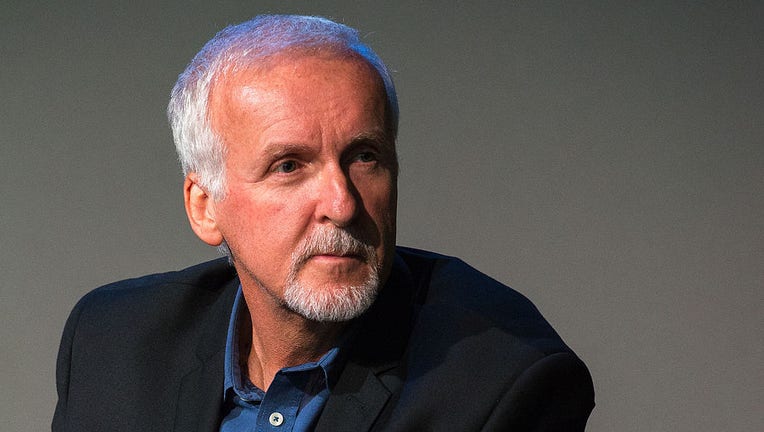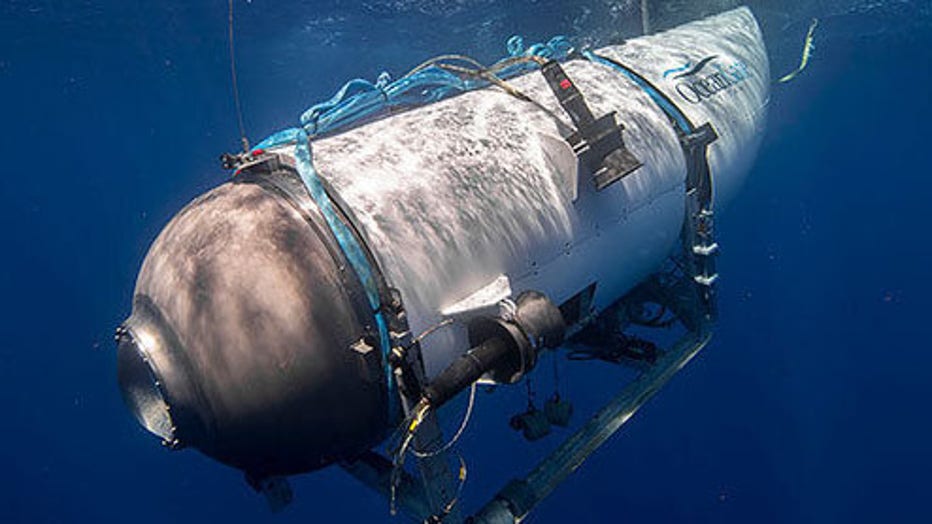James Cameron denies ‘offensive rumors’ that he’s in talks for film about doomed OceanGate submersible

Film Director James Cameron attends "Meet The Filmmakers" at Apple Store Soho on August 5, 2014 in New York City. (Photo by Mike Pont/FilmMagic)
James Cameron unequivocally denied Saturday that he was in talks to make a film based on the doomed OceanGate submersible that imploded last month while diving toward the Titanic wreckage, killing all five on board.
"I don’t respond to offensive rumors in the media usually, but I need to now," the "Titanic" director wrote on his Instagram Story. "I’m NOT in talks about an OceanGate film, nor will I ever be."
The "Avatar" director, whose 1997 film about the sinking of the Titanic in 1912 won 11 Academy Awards, is a member of the deep submersion community and has dived to the wreckage 33 times himself — but never with OceanGate.
Following the "catastrophic implosion" that killed the OceanGate passengers bound for the Titanic on June 18, Cameron told media outlets he wishes he’d "spoken up" about his concerns over the experimental sub’s design, especially its controversial use of carbon fiber for the hull.

An undated photo shows tourist submersible belongs to OceanGate begins to descent at a sea. (Photo by Becky Kagan Schott / Ocean Gate / Handout/Anadolu Agency via Getty Images)
‘TITANIC’ DIRECTOR JAMES CAMERON BREAKS SILENCE ON OCEANGATE DISASTER
"I thought it was a horrible idea," Cameron told Reuters last month. "I wish I'd spoken up, but I assumed somebody was smarter than me, you know, because I never experimented with that technology, but it just sounded bad on its face."
Cameron dived in submersibles that weren’t made with carbon fiber.
OCEANGATE SUSPENDS ALL EXPLORATION, COMMERCIAL OPERATIONS AFTER TITAN SUB IMPLOSION
He added that the industry standard is to make hulls out of contiguous materials such as titanium, steel, ceramic or acrylic and echoed concerns from critics that the materials used for the Titan’s hull would be susceptible to failure over time by way of delamination and water ingress, Reuters reports.
He also questioned the ethics of asking passengers to pay to ride when the company billed the sub as "experimental."
"We celebrate innovation, right? But you shouldn't be using an experimental vehicle for paying passengers that aren't themselves deep ocean engineers," he said.
OceanGate’s Titan sub lost contact with its mothership less than two hours into its descent toward that Titanic, launching an international search that lasted until June 23 when authorities revealed a debris field had been found near the Titanic and that all five old board — OceanGate CEO Stockton Rush, 61, Titanic expert Paul-Henri Nargeolet, billionaire Hamish Harding, 58, businessman Shahzada Dawood, 48, and his son, Sulaiman Dawood, 19 -- had died.
Cameron said he knew they had died the day after the sub went missing.
"We got confirmation within an hour that there had been a loud bang at the same time that the sub comms were lost," he told Reuters. "A loud bang on the hydrophone. Loss of transponder. Loss of comms. I knew what happened. The sub imploded," Cameron told Reuters, adding that he sent an email to colleagues Monday saying, "We've lost some friends" and "It's on the bottom in pieces right now."
Cameron also compared Rush’s actions to that of Titanic’s Captain Edward Smith.
"I'm struck by the similarity of the Titanic disaster itself, where the captain was repeatedly warned about ice ahead of his ship, and yet, he steamed up full speed into an ice field on a moonless night," Cameron said. "And many people died as a result and for us very similar tragedy where warnings went unheeded to take place at the same exact site."

